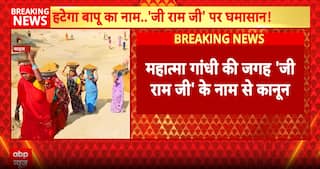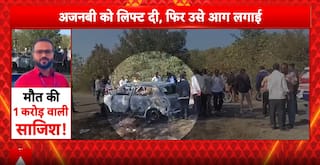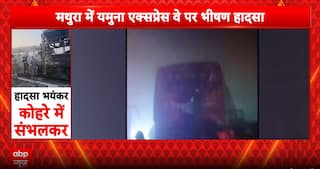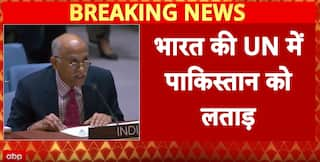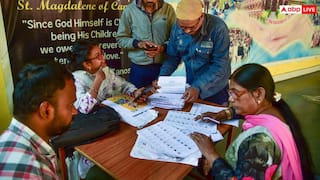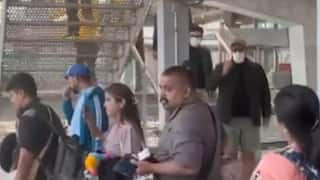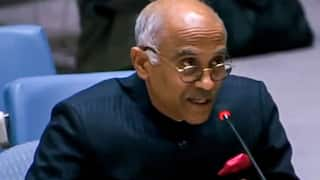Police Books NCC Cadet Of AMU For Chanting Inciting Religious Slogans On Republic Day
Police booked an AMU student in connection to a video showing NCC cadets shouting religious slogans after a Republic Day event.

An Aligarh Muslim University student has been booked by police on Saturday in connection with a video that reportedly showed a few NCC cadets shouting religious slogans after a Republic Day event, news agency PTI quoted officials saying. Based on Yogesh Varshney's complaint, a case under IPC sections 153B (remarks likely to cause disharmony, or feeling of enmity or hatred or ill-will) and 505 (mischief) was lodged against an unnamed NCC cadet, said Superintendent of Police, City, Kuldeep Singh Gunawat.
News agency PTI on Saturday tweeted about the Police registering a case against the aforementioned.
Police book Aligarh Muslim University student in connection with a video showing some NCC cadets purportedly raising religious slogans following a Republic Day function
— Press Trust of India (@PTI_News) January 28, 2023
Aligarh Muslim University formed a three-member panel to investigate the matter after two videos showcasing slogan shouting surfaced on social media platforms on Thursday evening.
In one of the two, a group of NCC cadets could be seen shouting "Allah hu Akbar" twice next to a flagpole. Another NCC group could be seen yelling "Bharat Mata ki jai" and "Vande Mataram" in front of a structure in the other footage, which lasted 19 seconds.
Satish Gautam, a BJP MP from Aligarh, had requested on Friday that the police take decisive action against the student and not display any complacency.
According to a senior AMU official, the purpose of the investigation, which the AMU authorities ordered, is to determine what led to the sloganeering.
AMU Proctor Mohammad Waseem informed the media that such a situation had never occurred at the campus on any national day celebration. They added that they have taken the matter very seriously.
A forensic examination of the video footage, according to the police, is being done to determine its authenticity.
(With PTI inputs)










